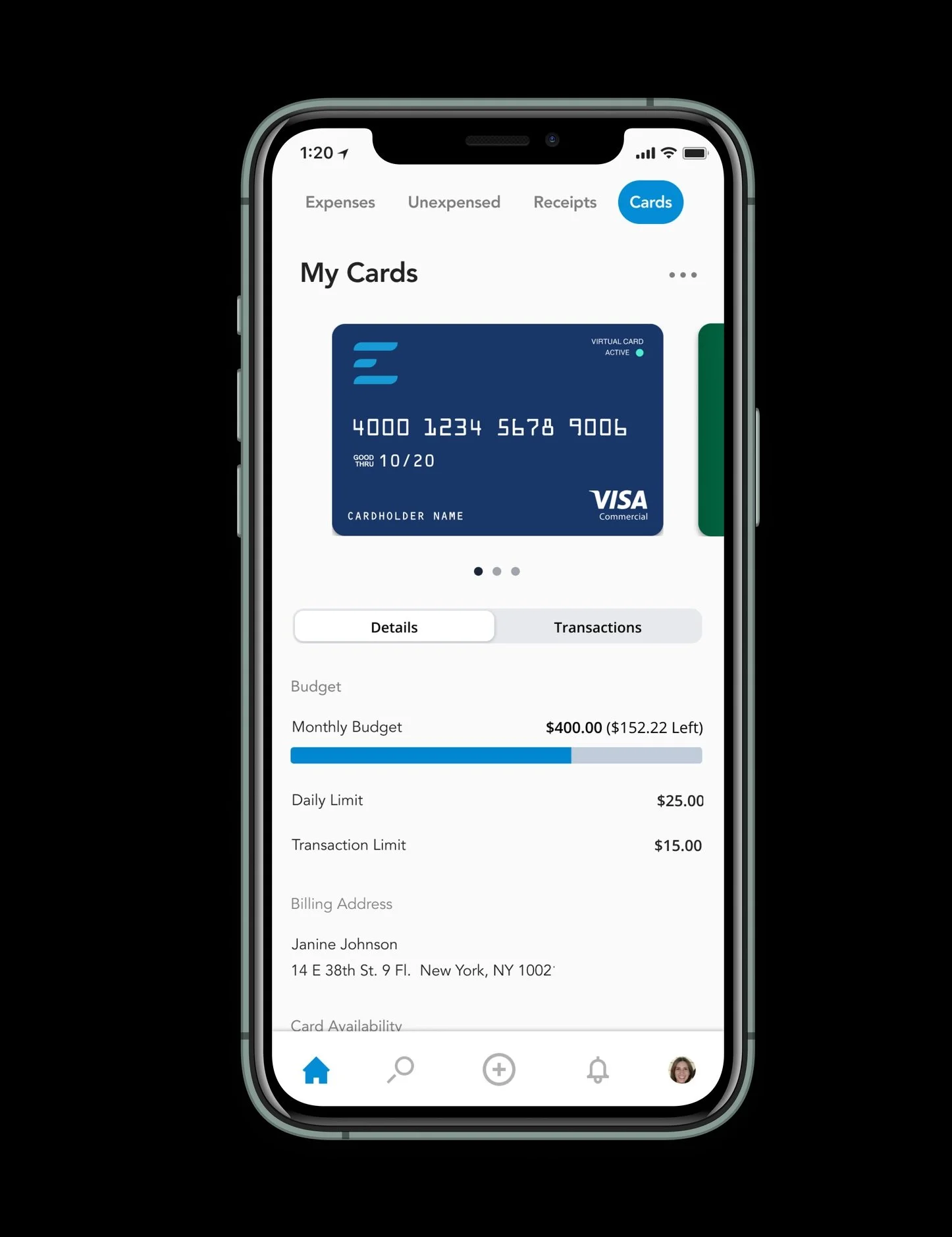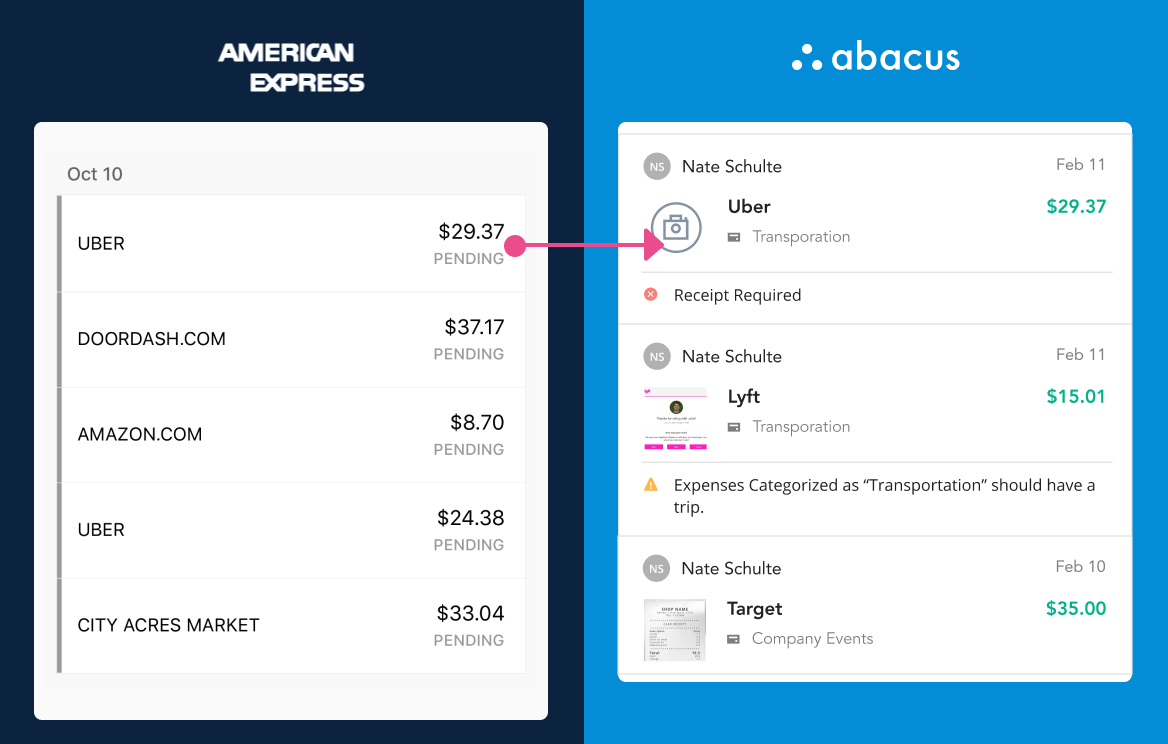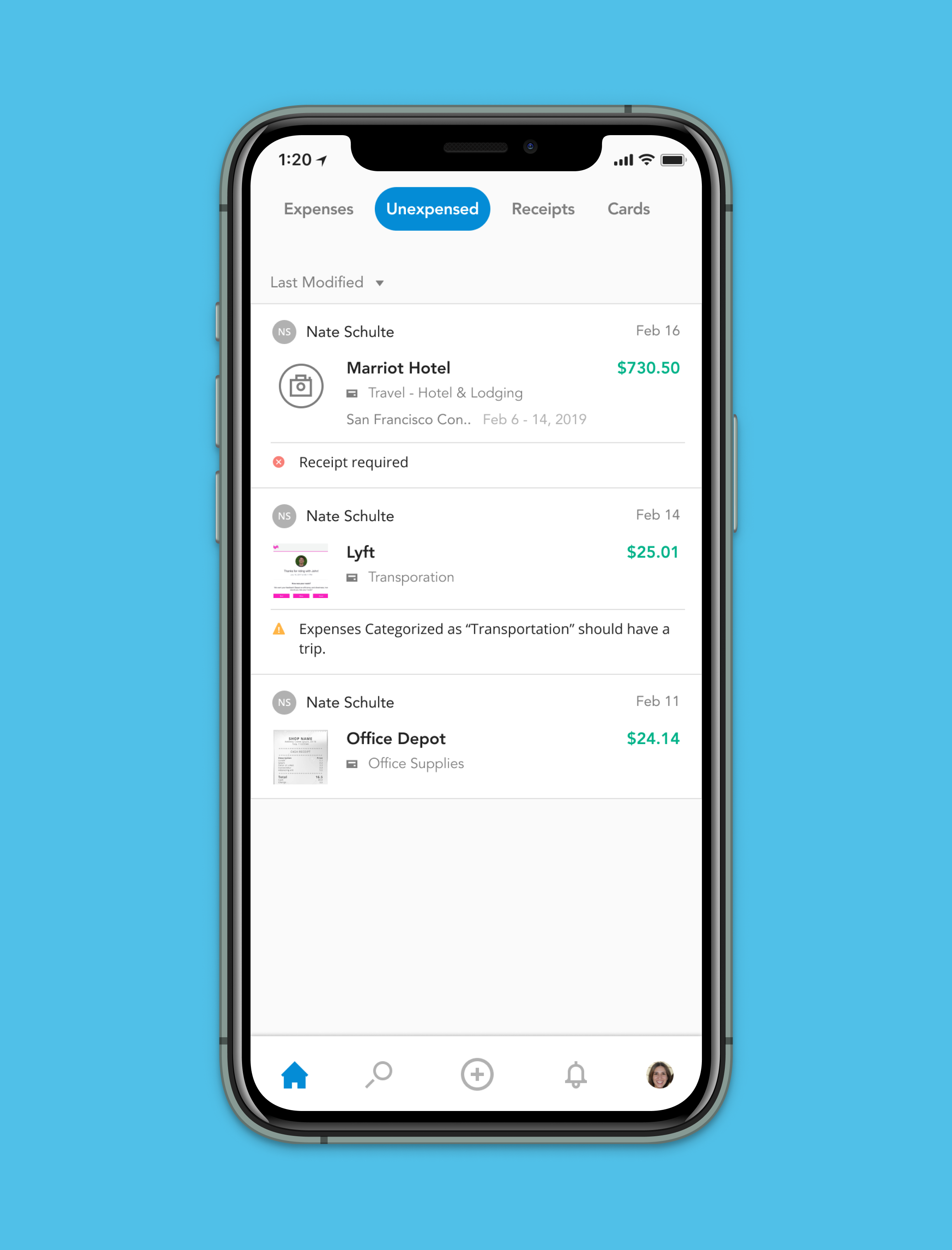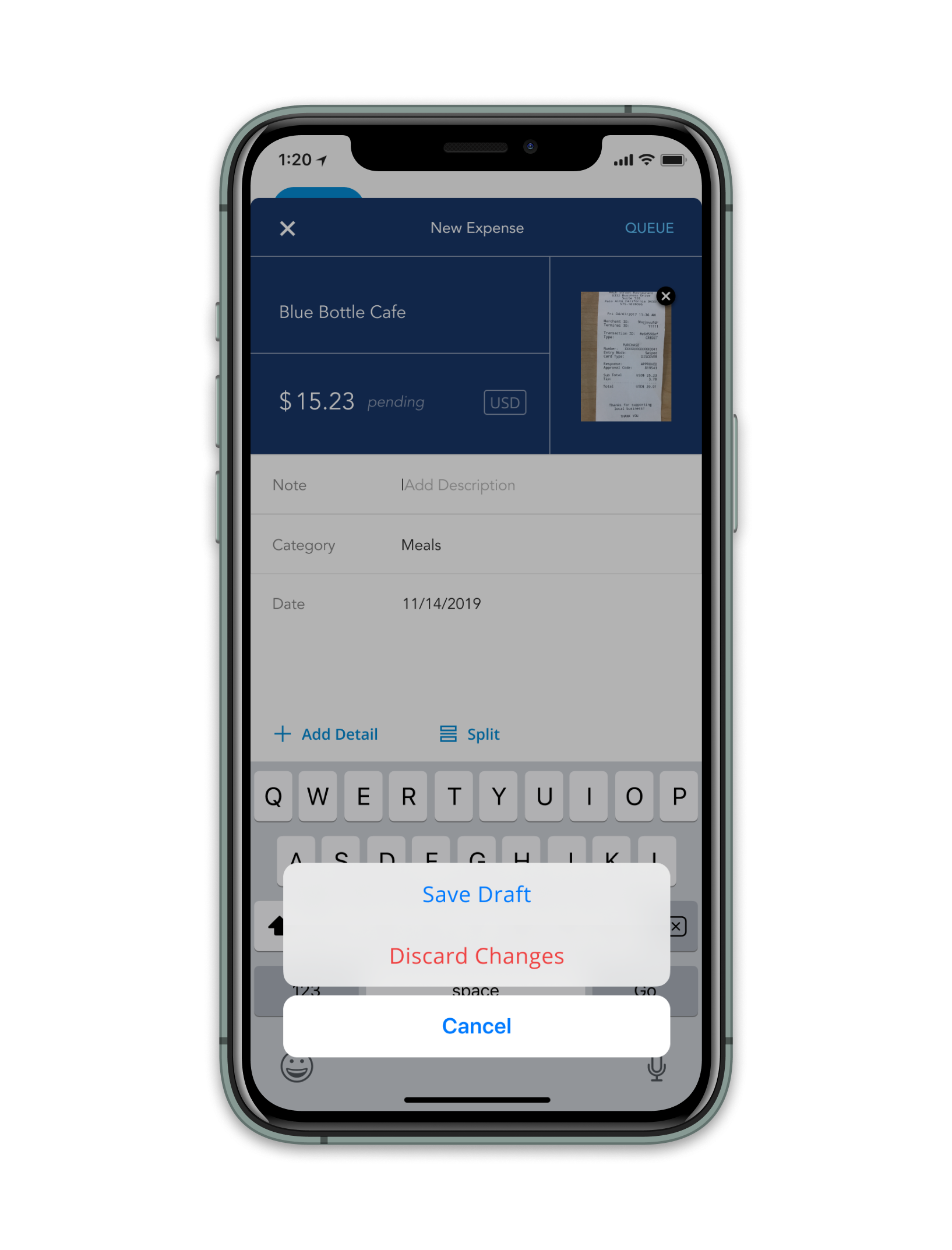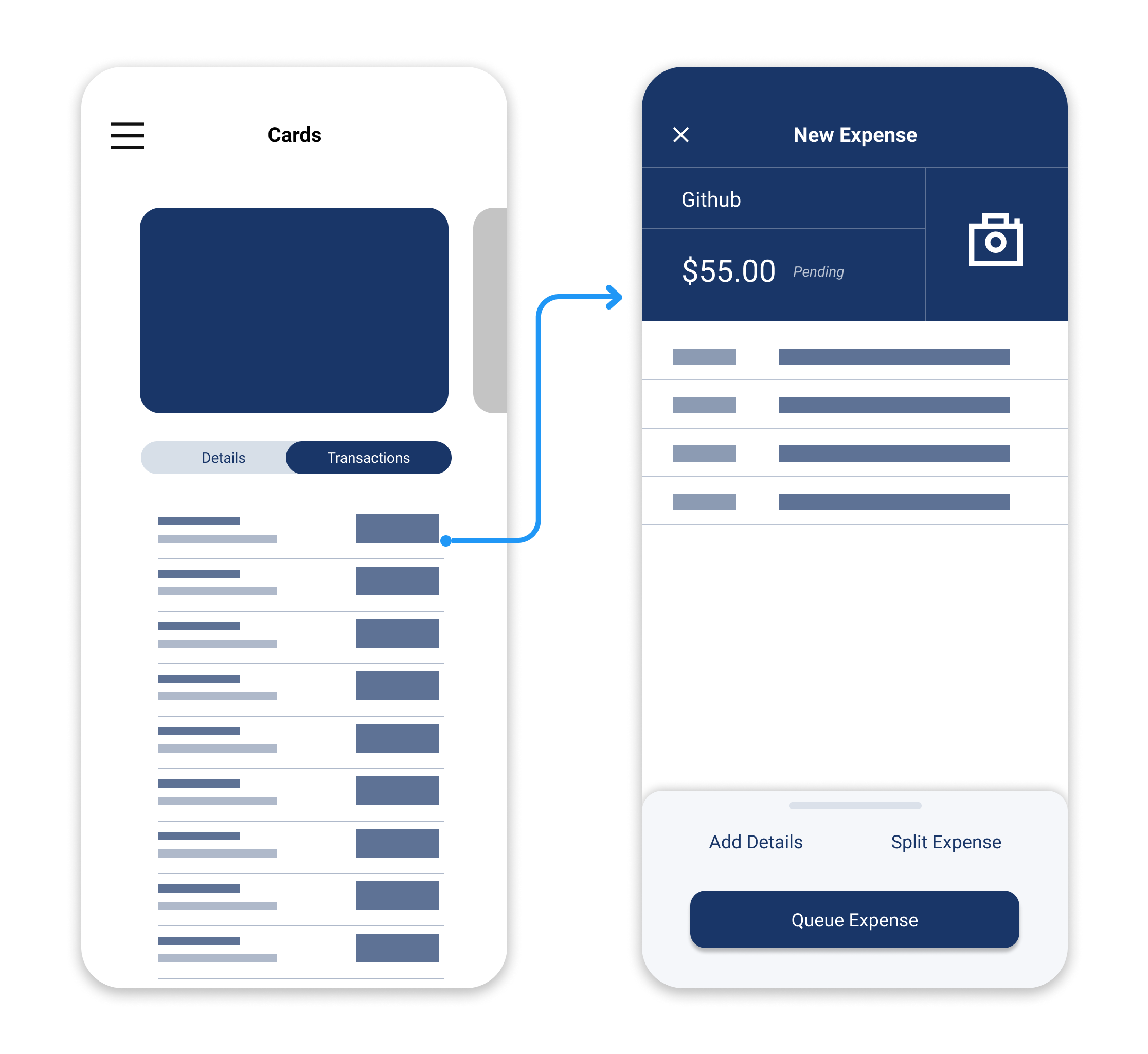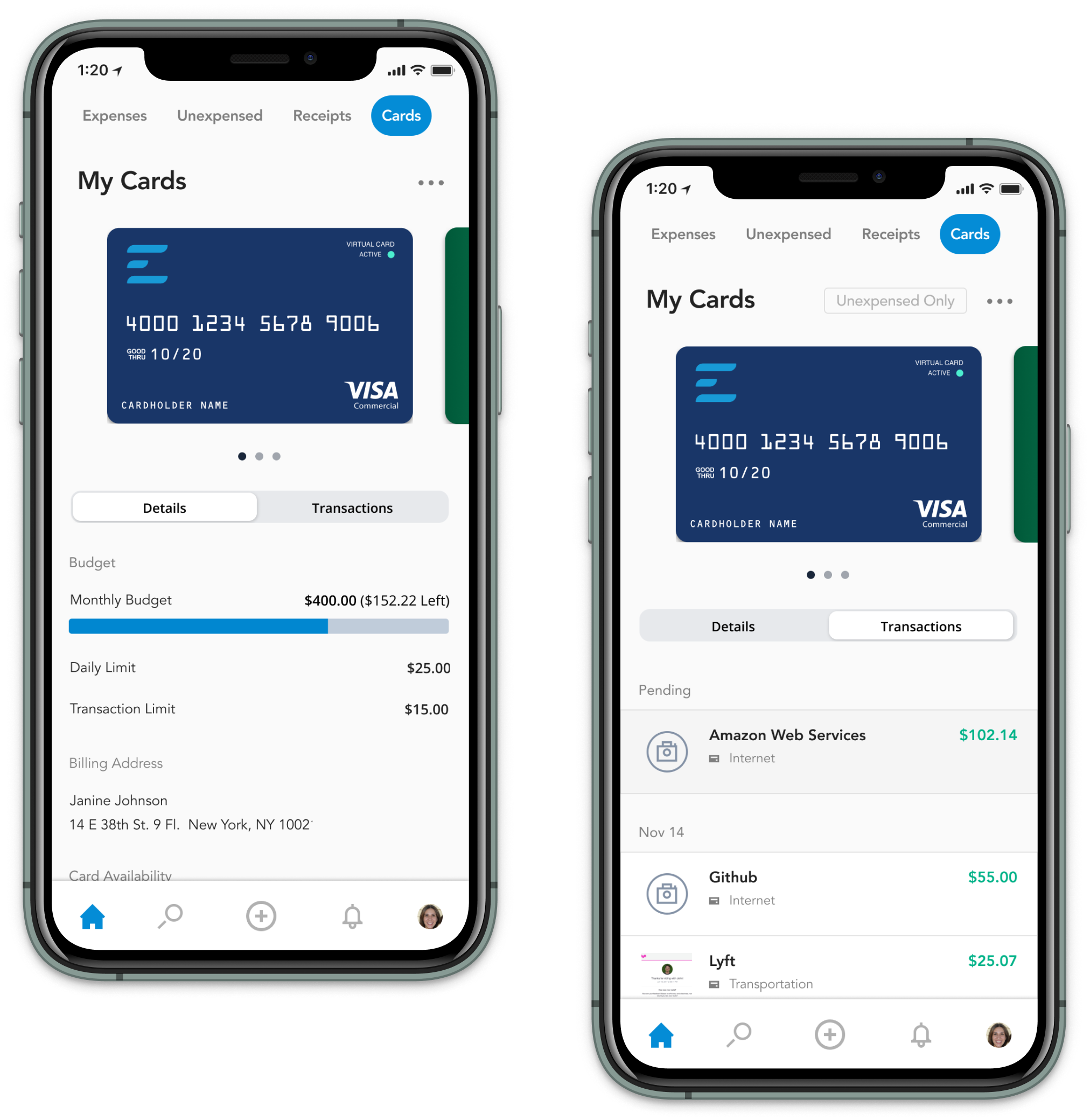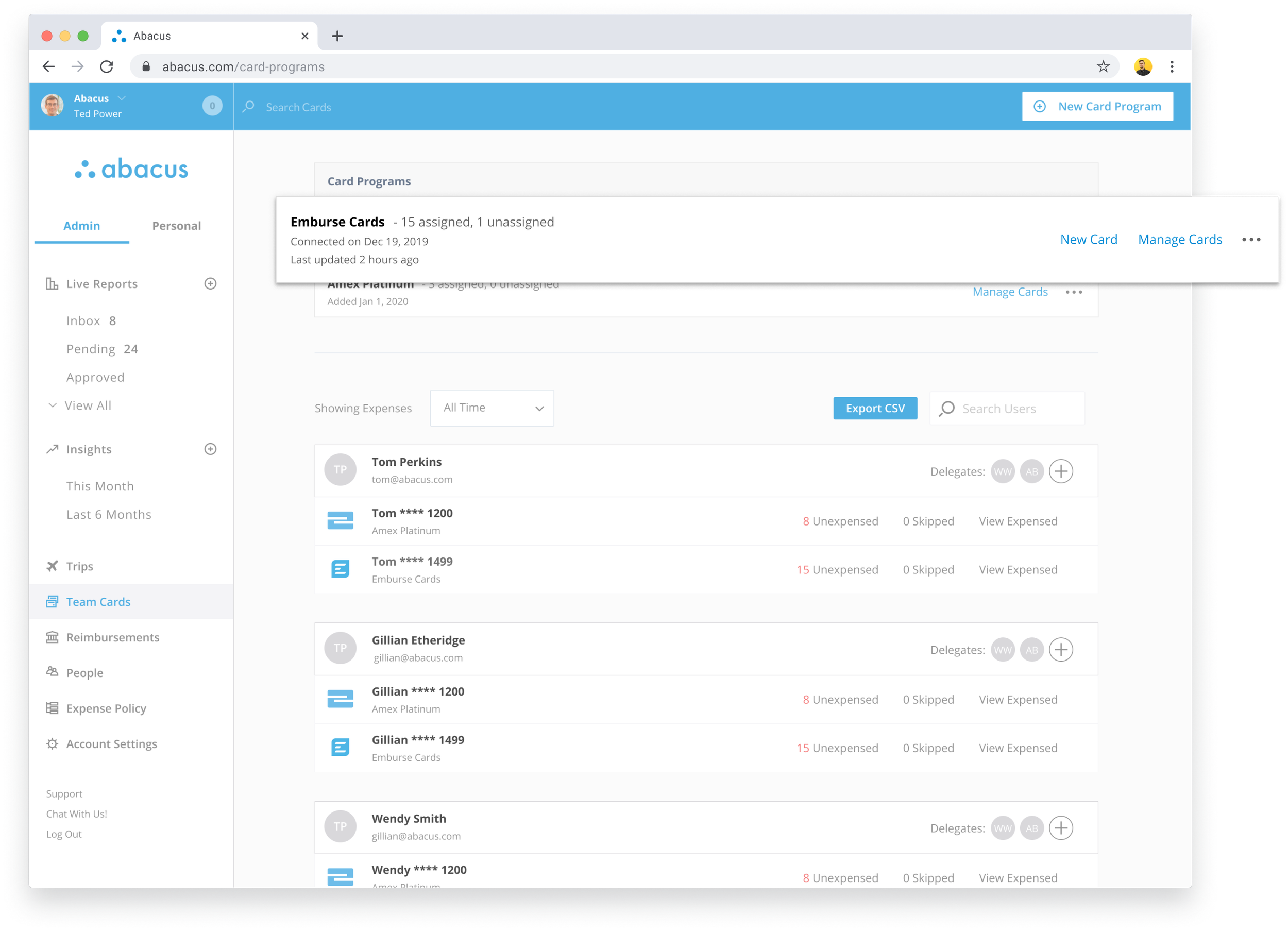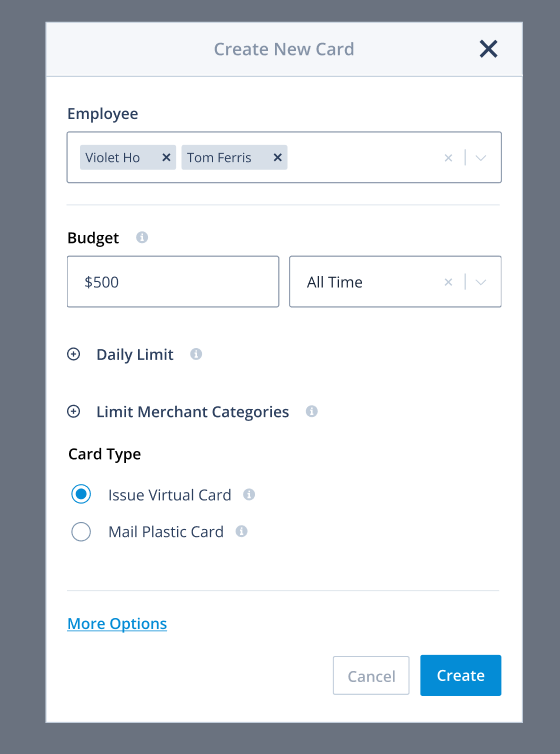Emburse Cards
Role: Lead Product Designer
Company: Emburse
Timeline: August-December 2019
Emburse Cards allow Managers to issue cards to Employees for company related expenses. The use of these cards automates and accelerates much of the expense reporting process. I designed a desktop experience to manage and issue cards to employees. I also designed a mobile and desktop experience for finding these cards and their transactions in the app. Additionally, I was responsible for ensuring transactions from these cards could be expensed immediately, even before the transactions post.
Evolution of Expensing
Abacus differentiates from the market by aiming for “Real Time” expense reporting since its origin in 2013. Competitors focused purely on the mobile experience at the time. “Real Time” essentially means employees can submit expenses immediately after a transaction, and automate as much of the process and reporting as possible. This is achieved by having direct access to card transaction feeds.
Real Time Expensing
Before Emburse Cards, companies submitted expenses in two ways: manually for reimbursable expenses, and from transaction feeds for non-reimbursable corporate card expenses. In both cases, a real-time expensing experience was far from the reality. Emburse Cards finally enabled us to deliver a real-time experience.
Manual Expensing:
The default expensing option is to create a manual expense. This is typically done for reimbursable expenses. For employees, the downsides are tedious manual entry, and waiting for reimbursement. For administrators, the downside is relying on employees and receipts alone for accurate expense records.
Corporate Transaction Expensing:
Employees can expense from connected corporate cards, which reduces the need for manual entry. However, they must wait for the card transactions to post and sync before expensing. Almost all companies forbid manually expensing corporate card transactions, which means employees delay expensing and the process breaks down when third-party card feeds go stale. Additionally, administrators lack spend control on these cards and usually foot the bill for out-of-policy expenses.
Emburse Card Expensing:
Employees can expense Emburse transactions even while they're pending. Since we have direct control over the transaction feed, we can ensure that these transactions show up reliably. Administrators also have spend control over these cards, and can even temporarily suspend them if transactions aren't expensed in a defined timeframe. In many cases, submitting these expenses is as simple as capturing and attaching a receipt.
Suggested Expenses
Suggested Expenses existed well before I joined Abacus or worked on this, but their functionality and use was limited.
They tap into credit card feeds and created “draft” expenses out of each transaction to save users a little time. In the background, if the user uploads a matching receipt, we can automatically add it to the Suggestion. We can also auto-categorize the expense based on the merchant and/or previous expenses from the user.
Draft Expenses
The development necessary to support expensing pending transactions also positioned us to support drafts with very little additional effort.
Essentially, they're both stored information about an expense that will eventually be submitted, but are editable in the mean time.
Drafts are an available ehancement for other card sources too, not just Emburse.
Accessing Card Details
Managers issue Emburse Cards to Employees for company expenses (this UX is discussed further down). Employees need to be able to access these cards and see information about them. For example, they might need to see the billing Zip Code in order to purchase gas. These cards also have associated budgets and expense restrictions that Employees will need to reference. Additionally, the cards will have transactions that Employees want to expense. Finally, these cards need to live side-by-side with other connected corporate or personal cards an employee has. I designed a Mobile Cards page as a new home for all of this.
The Manager / Admin Experience
Card Issuing Form
The card issuing modal allows managers to send cards to one or multiple employees. Each card requires a budget. The budget can be for one-time, or act as a monthly or weekly limit. A card can have a daily limit, or merchant category restrictions. Those are optional fields, but they need to be discoverable.
If I were designing from scratch I would not use a modal, but putting forms like this in a modal is consistent with Abacus's product design
Product Outcomes
This product has been released since January 2020. The industry at large has also moved towards Employee Card Issuing. The launch of card issuing at Abacus has revolutionized our product in the following ways:
Emburse emphasizes this capability when selling the product and onboarding new clients.
For clients who use Emburse Cards, Average Time to Submit Expenses (time between a transaction and a submitted expense) was reduced by 10%.
The card issuing experience at Abacus has been a model example at Emburse, copied at other business units within the company.
Higher Average NPS scores among clients and employees of clients who use the card issuing program
